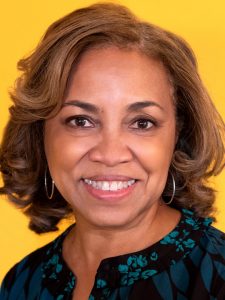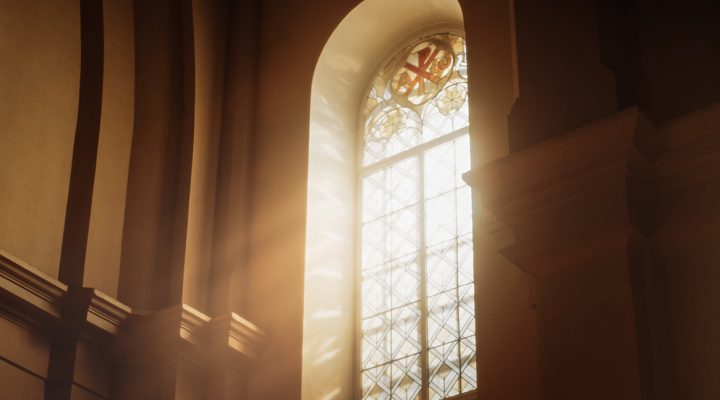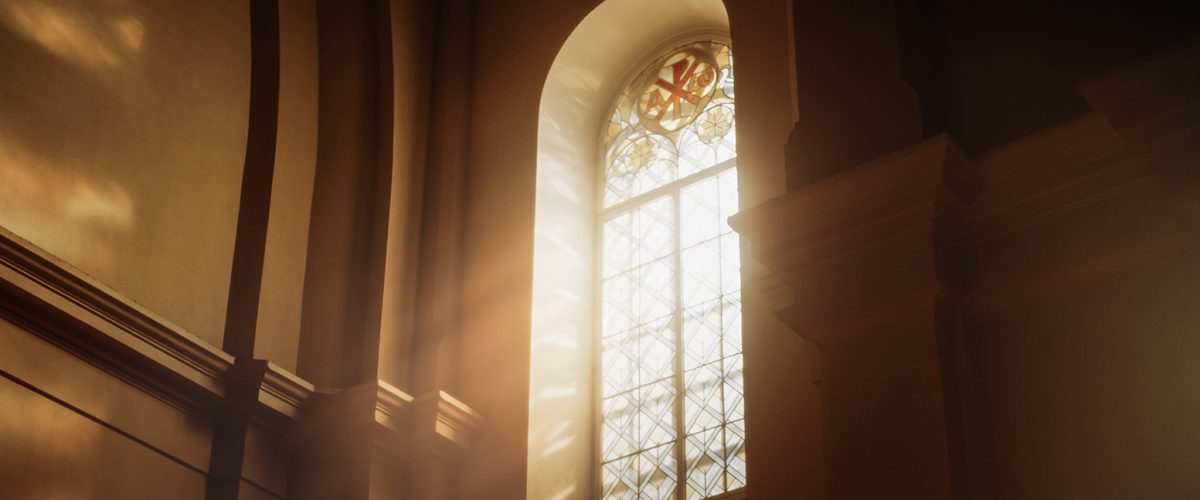Editor’s note: Gina Jacobs-Strain, newly called general secretary of American Baptist Churches USA, spoke with The Christian Citizenabout her plans and hopes for the denomination and the challenges she anticipates in her new role. This interview is republished by BNG with permission.
Congratulations on your new role! My first question is a big one: In which direction are you hoping to take the denomination? What would you like to champion?
I would like a renewed emphasis on youth and young adults. The inclusion of young people is a common need for our denomination. I think most of our churches are without young people or they make up a very small part of the congregation.
It is necessary for us to enter more spaces where the Great Commission and soul saving are at the center of what we do. So, I hope we are willing to be in spaces where people are looking to know God and even more so spaces where people don’t know they need God — and that may involve stepping outside of the norms of our churches.
I also know that in the short run, I really have to get to know the staff of ABCUSA as well as the board and understand how they understand their role as the harmonizers and conveners for the denomination.

Gina Jacobs-Strain
There has to be incredible intentionality about living our mission from the inside out and sharing a genuine love for our denomination, and an understanding that we are doing the work of preparing for Christ to return.
And so, what does that look like as we prepare for Christ to return? How are we living our faith? How are we building God’s kingdom? How do we make sure that certain ideals continue to be very central to our identity?
We have more common ground than differences, we have interdependence alongside independence, and being able to think critically and creatively together is essential. We have to continue to participate in genuine conversations that are sometimes prickly. But in a family, at the end of the day, you realize this is still your family. That’s still your brother, that’s still your sister.
Finally, I hope I will be known as one who expresses Christian love, extends hospitality and sustains fellowship.
And what are the challenges you foresee during your tenure?
We often have conferences and gatherings that do not make space for youth and young adults. So that to me is an immediate concern. How can we, as a denomination, grow and prosper, if we are not engaging young people in a way that they want to be engaged, not the way that we want to engage them?
At American Baptist Women’s Ministries, we have a young adult women’s ministry, and they plan the events and they select the venues. They select the topics that address their life choices, faith journeys, careers and family life.
Also, we have to be critical thinkers together. We don’t always have to agree on everything but should have a greater emphasis on our interdependence and creating and sustaining equity and justice in all we do. And as I am new to ABCUSA, I believe I have to continue to facilitate relationship building that enables us to deepen our fellowship, trust and collaboration at all levels.
Thinking about who’s going to lead the church in 30 or 40 years, these are the children who are now students at Sunday school. And if they’re not in church now, as young people, we can’t expect them to come back.
Right, our classes are very small and sometimes empty. I don’t believe it’s that young people don’t love Jesus. I think it is that they don’t always feel welcome. They don’t always feel accepted. Sometimes they feel judged, and we don’t want to give them too much responsibility.
“I don’t believe it’s that young people don’t love Jesus. I think it is that they don’t always feel welcome.”
When I got my first job as a young person, I received an expense account. I got a credit card. I had responsibilities that were given to me. And yet, in the church, often we will say, ‘Well, you can’t be a deacon until you’re 50. You can’t be a trustee until you’re a hundred!’ So, we have to welcome young people, trust God is working in them, empower them to plan and support them.
We have to realize that Sunday school may look different, but the goal has not changed. We are still excited to teach the story of salvation and to expose people to the love of Jesus Christ. The young people who are missing from our churches are our future and our present, so we have to build bridges.
Yes, there’s this idea that only older people can impart wisdom.
This year, I was invited by ABCUSA to do an Everyday ABC Conversation, and I invited a young woman to join me. She is not clergy. She’s recently graduated from college. And when I asked her to participate, I said, “We each get about 12 minutes, and here’s the text I think we’re going to use. Will you be my preaching partner?” And she said, “OK.” And then, as it got closer to the time, she said to me, “Do you want to read what I’ve written? And I said, “No, because I trust the same Holy Spirit that worked in me is the same Holy Spirit that worked in you.”
And she was so nervous! She said, “But I want you to hear it beforehand!” And I replied, “I’m going to hear it when everybody else hears it.” I think we need to trust that God reveals God’s self to those who seek God. And so sometimes that can be in a 10-year-old, and sometimes it’s in an 80-year-old. But we have to allow God to be God and move in ways that are always surprising and wonderful.
And how do you envisage working with ABC partner agencies?
I’m always looking for opportunities for us to collaborate. At ABWM we have engaged in several collaborative projects with our partners, allowing us to capitalize on the strengths of each organization. We need to figure out more ways for us to connect outside of the biennial. So, we may need to consider different opportunities for the staff to work together so that we are curating resources and benefiting from one another’s wisdom, experience and expertise.
One of the things we’ll do shortly after I start my new role as general secretary is to have an open house at the ABCUSA office so we may have a chance to fellowship with the partners. We probably don’t connect often enough to share the things we are doing, to build relationships, to affirm our ministries and to recognize our synergies.
I’m always on to the next project. So sometimes we have to pause, reflect, evaluate and celebrate. I hope we will have more moments of pause and celebration.
The last year there has been a lot of controversy around women’s ministry, and for us American Baptist women ministers it’s frustrating that media attention is always on what those other Baptists are saying, and how they’re discriminating against women ministers. We’ve seen that in a lot of headlines. Even though our denomination embraces women’s ministry, just being under this constant barrage of media headlines about these groups that are denying women the right to be ordained, or to be ministry leaders can be demoralizing. Do you have a message for female clergy about their place in the bigger plan?
One of the best pieces of advice I ever received in ministry was when a pastor said to me, “Guard your heart.” I didn’t fully get what that meant, but I think he was trying to prepare me for the opposition I was going to come up against and to know that guarding my heart would not always be easy. There were times when my heart was broken, and the opposition was and is difficult. Most women in ministry may have this experience.
And so, guarding your heart, self-care, soul-care, having a safe space to be with people who trust you and love you, and they don’t expect you to be clergy in that space. They’re not expecting you to be pastor. They’re not expecting you to be “Reverend Doctor.” They’re just expecting you to be you, whoever that happens to be. That is really important. Having friends, fellowship and relationships that are broad, that are ecumenical, that are in corporate settings, that are part of churches so that you are aware of other opportunities and things that are taking place around you.
“While we support women in ministry, we still have a very, very long way to go.”
While we support women in ministry, we still have a very, very long way to go. I think our statistics would show maybe 12% or 14% of our pulpits have women as senior pastors. When I came to ABWM five years ago, I was really surprised to see Valoria Cheek at ABEC, Michaele Birdsall at ABHMS, Priscilla Eppinger at American Baptist Historical Society. I was surprised to see so many women, clergy and laity, in senior positions.
ABWM had an intern who was with us a few summers ago, who shared that in one day, she had met more female clergy than she had in her entire life. She came from a very traditional background where women were not celebrated, and she believed even after getting a degree from Princeton Theological Seminary, the biggest thing she would be able to do would be to teach Bible study (not that this is a small thing to do). She thought she would not be able to lead a congregation.
It’s up to the denomination, all of us, to make space for all God’s gifts because gifts don’t come in a certain package. When we limit God’s gifts, when we limit the movement of God, because we believe to be ordained clergy or to be a leader in a church you must look a certain way, then I think we do harm to our fellowship.
For women, the opposition always has been there, and often, we’re not given a chance to lead a church or to be in a senior position until a situation is quite desperate. And then it’s like, “OK, we’ll give a woman a shot. Let’s see what she can do.”
It’s up to all of us as brothers and sisters to work together so that all God’s gifts are being used. When all God’s gifts are being celebrated and used, there is a joy that is abundant. There’s a generosity of spirit; I think that’s what we want in our denomination.
My heart breaks when I know of anyone who has been called by God and yet they’ve not been called to live out their call. There are at least two sides to a call to ministry. God calls you, and then the actuality of you living it out in community.
And so, it’s very important for us always to have that in the forefront of our minds, as opportunities are available in churches, regional and national leadership.
So many clergy leave in the first five years, because ministry is not easy. So, the idea of building communion and fellowship among clergy and making space for all of God’s gifts is really important.
If you look at the numbers of women and men in ABC seminaries, they’re 50-50. But something goes wrong after seminary.
That is a great example. If 50% are in divinity school, which is expensive, what happens to those gifts when they leave? So, you’ve recognized your call. You’re moving forward, and then there is that Grand Canyon-like separation that happens between you’re leaving seminary and being called to a position. There are search committees that won’t even see women. We have to be more diligent in mentoring and connecting with women so that we don’t lose them.
At least the numbers are creeping up. And things are changing. But clearly, like you said, there’s work to do. Your selection is a big sign to the world, you know. Here we are, and we’re Baptists, and we are led by someone who is a woman. That’s also a signal to the denomination, I would think. If the general secretary can be a woman, then it’s absolutely appropriate that at the church level that is also true.
What I said about guarding your heart and soul care, having a safe space; that’s true for all clergy, but it is especially important for women, because often there are more obstacles in our path. As women, we are able to break through the stained-glass ceiling with the support of women and men. I may be the first woman to serve as a general secretary, however Susan Gillies did serve as the interim general secretary. I am certainly not the first woman who was capable of doing this, and I trust that I will not be the last.
When I worked for American Baptist Churches of New Jersey, one of the things that became very clear to me, as the associate regional pastor for women in ministry, there were so many more women at the associate level than the senior pastor level. Oftentimes we focused on women in the more senior roles. So, we had to really open our ministry to associates and to women in ministry more broadly.
If you were at an ABC church that was dually aligned, or an AME church, or a Presbyterian church and you wanted to participate in women in ministry events, we welcomed you. We took a more ecumenical approach to women in ministry. It can be difficult for us to find fellowship and to continue to grow. Sometimes you have to open up spaces for that to happen.
Is there anything I didn’t ask about in the interview that you would like to talk about?
One of the things that’s really important: I believe in bathing everything in prayer. And I’m hoping that, as we collaborate more with our partners, and as I find out more about the strengths of the ABCUSA staff, we will be very intentional about being prayerful for everything we do, and really seeking the face of God.
I’m not saying we haven’t done that. But I’m just saying this is so much of who I am. I am praying and fasting and trying to be very intentional about hearing the voice of God, as I was in the selection process and as I prepare to serve ABCUSA. Prayer changes things. I’m sure that is how I got here … people were praying. And I’m grateful for that.
I am also incredibly grateful for the work of the search committee. This was a job for them; they spent 18 months in this process. I really appreciate their commitment, their devotion and the boldness of both the search committee and the board.
I’m blessed the board said yes. The search committee made a unanimous decision, a recommendation, but it was really up to the board to vote yes. All of that took a lot of prayer and genuine care for our denomination.
Anna Piela is an ordained American Baptist Churches USA minister. She is senior writer for the American Baptist Home Mission Societies and associate editor of The Christian Citizen, and co-associate regional minister for White and Multicultural Churches, ABC Metro Chicago. A Polish immigrant and a scholar of religion, she holds a doctorate in women’s studies from the University of York, UK. Her second book, Wearing the Niqab: Muslim Women in the UK and the US, was published in 2021.
Related article:


